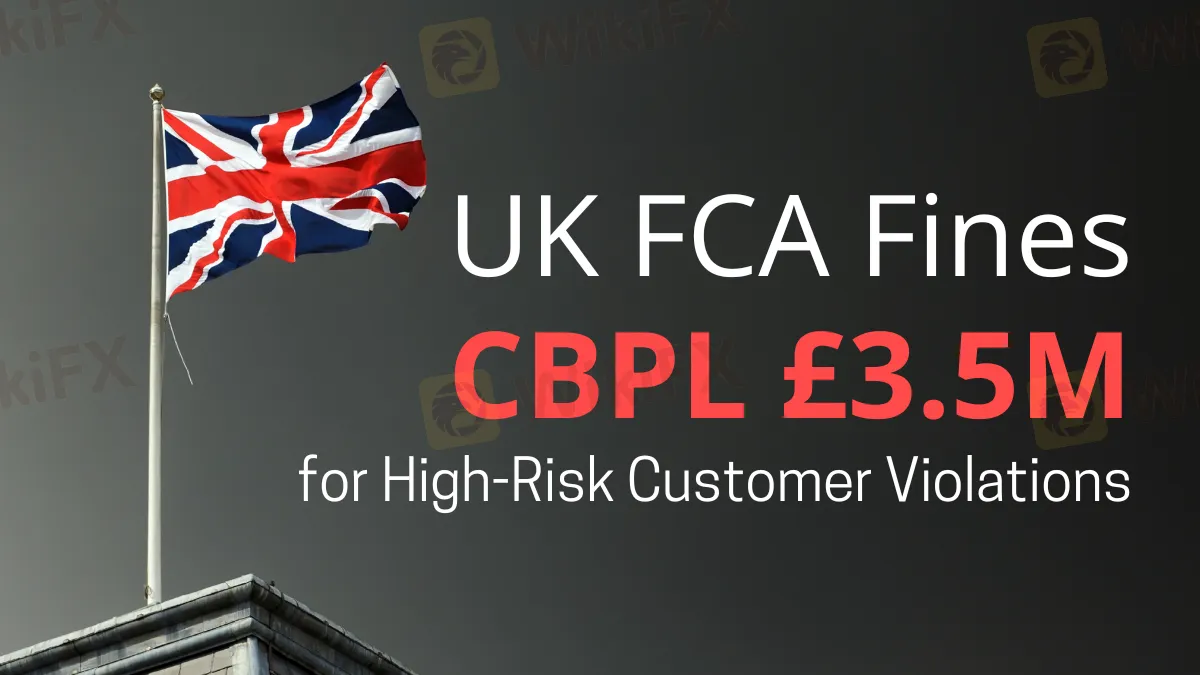简体中文
繁體中文
English
Pусский
日本語
ภาษาไทย
Tiếng Việt
Bahasa Indonesia
Español
हिन्दी
Filippiiniläinen
Français
Deutsch
Português
Türkçe
한국어
العربية
UK FCA Fines CBPL £3.5M for High-Risk Customer Violations
abstrak:The UK FCA has fined CBPL £3.5M for onboarding high-risk customers, violating regulatory requirements, and weak financial crime controls.

The Financial Conduct Authority (FCA) fined CB Payments Limited (CBPL), a member of the Coinbase Group, £3,503,546 for failing to comply with regulatory standards. The good outcomes of CBPL's inability to follow guidelines prevented it from providing services to high-risk clients.
CBPL provides a worldwide crypto asset trading platform but does not directly handle crypto-asset transactions. Instead, it allows customers to access these transactions via other Coinbase Group firms. CBPL needs to be registered in the United Kingdom to conduct crypto-asset transactions.
CBPL Exceeds High-Risk Levels
Following negotiations with the FCA, CBPL agreed on a voluntary requirement (VREQ) in October 2020. This criterion was motivated by worries regarding the efficiency of CBPL's financial crime control structure. The VREQ expressly forbade CBPL from onboarding new high-risk clients until its control mechanisms could be improved.
Despite this prohibition, CBPL accepted and served 13,416 high-risk clients with e-money services. Approximately 31 per cent of these consumers made deposits totalling USD 24.9 million. These monies were then utilized for withdrawals and crypto asset transactions via other Coinbase Group firms, totalling about USD 226 million.

CBPL violated the VREQ by failing to develop, test, implement, or monitor appropriate controls, resulting in the first FCA fine under regulations. The company should have considered all possible onboarding techniques and effectively monitored compliance. As a result, several severe breaches went unnoticed for almost two years.
Therese Chambers, the FCA's Joint Executive Director of Enforcement and Market Oversight, underscored the seriousness of the situation: The money laundering concerns linked with cryptocurrency are evident, and enterprises must take them seriously. Firms that support crypto trading, such as CBPL, must have rigorous financial crime controls.
Chambers said, “CBPL's controls had major flaws, which is why the restrictions were enforced. CBPL, on the other hand, consistently violated these rules. This enhanced the likelihood that criminals would utilize CBPL to launder their money. We will not allow such leniency, which endangers the integrity of our markets.”
Conclusion
This is the FCA's first enforcement action under the 2011 Electronic Money Regulations. CBPL agreed to remedy the situation, which resulted in a 30% reduction in the punishment. The FCA's decisive action emphasizes the significance of financial solid crime controls in the fast-changing crypto asset business.
For trending news, access the daily news on the financial market here.

Disclaimer:
Ang mga pananaw sa artikulong ito ay kumakatawan lamang sa mga personal na pananaw ng may-akda at hindi bumubuo ng payo sa pamumuhunan para sa platform na ito. Ang platform na ito ay hindi ginagarantiyahan ang kawastuhan, pagkakumpleto at pagiging maagap na impormasyon ng artikulo, o mananagot din para sa anumang pagkawala na sanhi ng paggamit o pag-asa ng impormasyon ng artikulo.
Broker ng WikiFX
Exchange Rate


